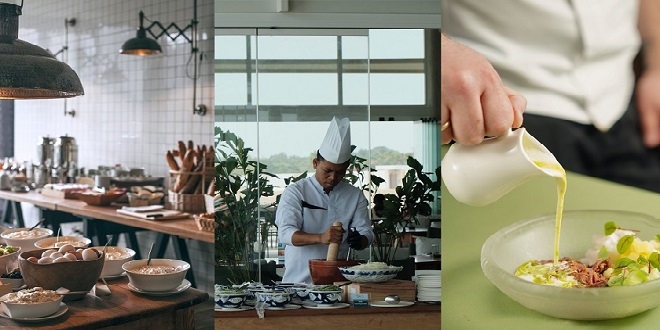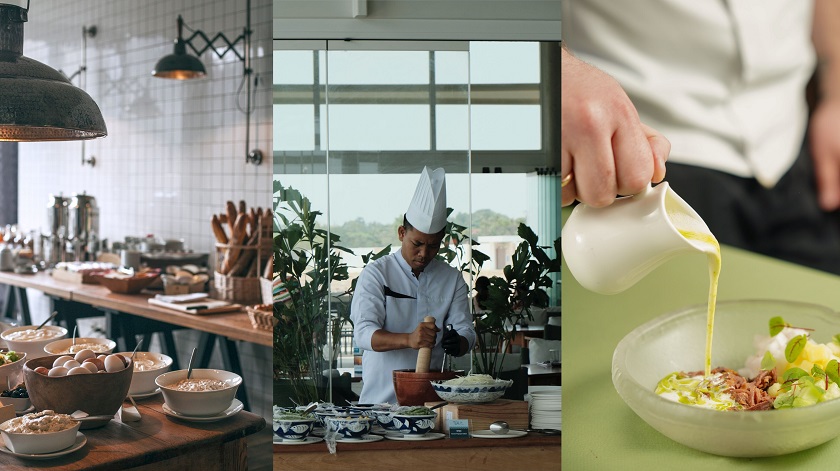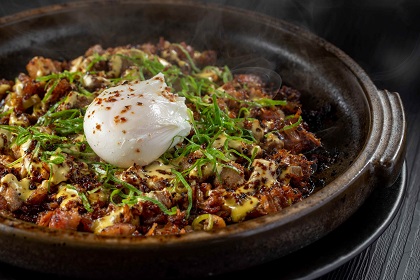
The 2023 Philippines Hospitality Industry Cage-Free Scorecard reveals the majority of hotel groups in the country have stopped using eggs from cruel and unsafe cage farms.
A recent report by the Lever Foundation, a prominent NGO dedicated to animal welfare, has revealed a remarkable development in the Philippines’ hospitality sector. Over 75% of the country’s major hotel groups have committed to a significant transformation by embracing cage-free eggs throughout their operations.
The highly anticipated 2023 Philippines Hospitality Industry Cage-Free Egg Scorecard assessed the public policies of renowned hospitality groups operating in the country, focusing on companies with at least five hotels globally. The results are astounding: out of the 29 hospitality groups meeting the evaluation criteria, 76% (a total of 22 groups) have established clear timelines for transitioning to the exclusive use of cage-free eggs.

During the past eighteen months, several domestic hospitality groups have taken the lead in this momentous shift. Ascott Philippines, Federal Land GT, SM Hotels and Convention Centers, Araneta Hotels, Robinsons Hotels & Resorts, Alphaland Corporation, Megaworld, Bellevue Hotels & Resorts, Shangri-La Philippines, and Newport World Resort have all set timelines to shift to using only cage-free eggs. Furthermore, City of Dreams, Okada Manila, Solaire Resort and Casino, and Balesin Island Club have already fulfilled their commitments and successfully transitioned to cage-free eggs. Notably, international groups operating in the Philippines, such as Accor, Best Western Hotels, Hilton, Hyatt, IHG, Marriott, Millennium Hotels and Resorts, Radisson, The Peninsula, Wharf Hotels, and Wyndham, had previously issued similar commitments.


Robyn Del Rosario, Sustainability Program Manager at the Lever Foundation, expressed her enthusiasm about this industry-wide shift, stating, “This momentous transition to cage-free eggs across the majority of the country’s hospitality sector reflects both a more compassionate approach toward animal welfare and a move toward higher food safety and quality.” The Lever Foundation collaborated closely with domestic hospitality companies and several international groups to encourage and support their commitments to animal welfare.
The shift towards cage-free eggs is a crucial step in promoting responsible sourcing and sustainability, as consumers increasingly prioritize ethically sourced food. By transitioning away from caged eggs, hospitality brands are taking a holistic approach to their sustainability strategies, aligning with the evolving values of their customers.
However, the report also highlighted that nine hotel groups surveyed have not yet set timelines for ending the use of caged eggs in their operations. These groups include Hotel 101, Ayala Land Hotels and Resorts Corp., Eco Hotels Philippines, Discovery Hospitality, PHINMA Hospitality, Diamond Hotels Philippines, Chroma Driven Hospitality, Astoria Hotels and Resorts, and Rizal Park Hotel. Encouragingly, the momentum towards cage-free eggs in the hospitality sector continues to grow, and there is hope that these remaining groups will soon follow suit.
Worldwide, animal protection and food safety organizations endorse the switch to cage-free eggs, emphasizing the benefits for both animals and consumers. The confinement of hens in battery farms severely restricts their natural behavior, leading to unnecessary suffering. Moreover, research by esteemed institutions, including the European Food Safety Authority, has demonstrated that cage egg farms are up to 25 times more susceptible to key strains of salmonella compared to cage-free farms. In response to these concerns, proactive measures have been taken in various countries, including the European Union, Australia, New Zealand, the United Kingdom, Canada, India, and specific regions in the United States, which have already implemented bans on battery cage egg production.
Recognizing the global trend towards cage-free eggs, many hospitality, retail, food service, and packaged food brands have pledged to exclusively use cage-free eggs not only in the Philippines but also throughout Southeast Asia. To support and regulate this growing sector, the Bureau of Agriculture and Fisheries Standards (BAFS) initiated the development of a national Code of Practice (COP) for Cage-Free Egg Production in 2020.
In conclusion, the Philippines’ hospitality industry has taken a giant leap towards animal welfare and sustainability by committing to the exclusive use of cage-free eggs. This move reflects both a compassionate approach towards animals and a dedication to providing safer and higher-quality food to consumers. As the hospitality sector continues to embrace this transformation, it paves the way for a more ethical and responsible future in the food industry. Additionally, consumers’ increasing awareness and choices play a crucial role in driving positive change, encouraging companies to prioritize animal welfare and sustainable sourcing practices.







